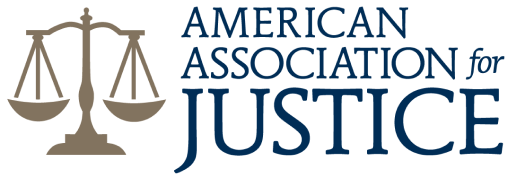Traumatic brain injuries account for one-third of all injury-related deaths in the United States, with adults over 75 at the highest risk. Approximately 52,000 individuals die every year due to a traumatic brain injury, while over a million Americans who have suffered a traumatic brain injury require ongoing assistance to perform daily tasks.
At the Ernst Law Group, an expert Los Angeles brain injury lawyer fights to get our clients the compensation they deserve. We won over $10 million for a client who suffered a severe traumatic brain injury after being struck on his bike outside of a shopping center. Our Los Angeles personal injury team ensured that he received the damages he was due and worked to increase safety regulations at shopping centers across the state to prevent future accidents.
Get the most compensation for your brain injury by calling Ernst Law Group today.
What Is a Traumatic Brain Injury?
According to the CDC, a traumatic brain injury (TBI) is a disruption in regular brain function due to a blow to the head or a penetrating head injury.
Many people associate traumatic brain injury with playing contact sports, such as football. They assume that they cannot be injured in this way unless they are physically tackled. However, this is not the case. Car accidents, construction site accidents, and slips and falls are a few more common sources of TBIs.
There are two types of traumatic brain injury: mild and severe.
Mild traumatic brain injury is a temporary disruption to regular brain function. This includes concussions, which heal over time and allow the victim to return to their normal daily life.
Severe traumatic brain injuries can result in long-term complications in brain function or death. These types of traumatic injuries involve bruising, torn tissues, bleeding, and other physical damage to the brain, resulting in permanent changes.
How Ernst Law Group Can Help
Suffering a brain injury is life-altering, impacting not only your physical and mental well-being but also your financial stability and overall quality of life. At Ernst Law Group, we understand the complexities of brain injury cases and have over 35 years of experience helping victims navigate the legal system to secure the compensation they deserve.
Whether the injury resulted from a car accident, a slip and fall, or another form of negligence, our team has the expertise to handle these challenging cases.
We start by thoroughly investigating the circumstances of your injury, working with medical experts and accident reconstruction specialists to build a strong case. Brain injuries often require extensive treatment, and the long-term costs can be substantial. We’ll ensure that all your damages are accounted for, including medical expenses, rehabilitation costs, lost wages, and diminished earning capacity.
We also understand that the emotional and cognitive effects of a brain injury can significantly affect your quality of life. That’s why we fight to secure compensation for pain, suffering, and loss of enjoyment of life, providing the support you need to move forward.
Our team is committed to guiding you through every step of the legal process with compassion and expertise. From negotiating with insurance companies to advocating for you in court, we are here to fight for your rights and ensure you receive the justice you deserve. Contact us today for a free consultation and let us help you rebuild your life after a brain injury.
What are the Common Causes of Brain Injuries in Los Angeles?
Traumatic brain injuries are caused by a blow to the head or something penetrating the head. The severity of the brain injuries is often related to the severity of the impact that caused them.
Unfortunately, the causes of traumatic brain injuries are often unavoidable. They can occur at any time during your daily life. This is why it’s so important to be aware of the effect that they may have on you.
Being aware of when they can occur and the causes of traumatic brain injuries can help you seek treatment early on to prevent secondary injuries from occurring. In Los Angeles, the most common causes of brain injuries that lawyers see are:
- Falls, especially personal injury slip and fall cases
- Being struck by a falling object
- Car crashes
- Gunshot wounds
- Sports injuries
- Physical assault
- Medical malpractice
- Blast from explosions
What are the Different Types of Brain Injuries?
Traumatic brain injuries can be broken down into primary and secondary. Primary brain injury refers to the sudden injury to the brain that may occur at the moment of impact with an object, during a car accident, due to a fall, or from a gunshot wound. This marks the primary injury to the brain as caused by the event.
Secondary traumatic brain injury refers to the changes to the brain that occur hours or days after the initial primary brain injury. These typically cause steps or stages of changes in the brain that further destroy the brain tissue, causing serious, debilitating injuries.
Some types of primary brain injury include:
- Intracranial hematomas, when a ruptured blood vessel leads to the collection of blood in brain tissues or empty spaces
- Skull fractures, where the skull has split or crushed, which exposes the brain to infection
- Coup-Contrecoup injury, a bruise to the brain tissue. This typically occurs in vehicular crashes when the head is propelled forward and accelerated, then moved back in deceleration.
- Lacerations, tears in the brain tissue
- Diffuse axonal injury, the result of twisting and tearing nerve fibers
Some types of secondary brain injury include:
- Hypoxia, insufficient oxygen to the brain
- Hypotension, high or low blood pressure
- Ischemia, insufficient blood flow to the brain
- Cerebral Edema, swelling of the brain
- Hydrocephalus, excessive levels of carbon dioxide in the brain
- Meningitis, infection in the brain
- Herniation, parts of the brain are displaced due to increased pressure in the skull
- Epilepsy, seizures
Second Impact Syndrome is a rare occurrence where death or severe neurological injuries occur when a person sustains a section traumatic brain injury before the first has healed.
Learn more: What are the most common types of traumatic brain injuries?
What Are the Symptoms of a Brain Injury?
Traumatic brain injuries can have a wide range of physical and psychological effects. They are not limited to the brain and can spread throughout the body, affecting a victim’s ability to function in daily life.
Victims may suffer physical symptoms, sensory symptoms, behavioral symptoms, or other mental symptoms. While some may resolve, others can last a lifetime.
Symptoms of traumatic brain injuries include:
- Headaches
- Migraines
- Nausea or vomiting
- Fatigue
- Drowsiness
- Slurred speech or inability to process others’ speech
- Dizziness or vertigo
- Blurred vision
- Ringing in the ears
- Sensitivity to light or sound
- Changes in their ability to smell
- Bad taste in their mouth
- Blacking out for second to minutes
- Dazed, confused, or disoriented spells
- Trouble concentrating or remembering
- Mood swings
- Difficulty sleeping
- Depression or anxiety
- Sleeping too much
- Losing consciousness for hours
- Convulsions or seizures
- Dilation of pupils
- Clear fluids coming from the nose and ears
- Inability to wake up
- Weakness or numbness in extremities
- Loss of coordination
- Agitation or combative behavior
- Coma
Symptoms are different for children who suffer traumatic brain injuries. They are more likely to struggle to communicate their symptoms. Be alert for:
- Change in eating habits
- Unusual irritability
- Persistent crying
- Change in sleep habits
- Seizures
- Depressed mood
- Drowsiness
- Loss of interest in things they used to love
If your child is presenting any of the above symptoms, it is advised to seek medical intervention.
The Challenges of Living With a Brain Injury
Living with traumatic brain injuries drastically changes your life. You will not be able to function as you always did.
Minor traumatic brain injuries, such as concussions, make it impossible to work due to heightened light and noise sensitivity. Once the constant headaches, dizziness, and vomiting subside, the victim may continue to suffer for months with balance issues and an inability to work in an office setting due to sensitivities.
Physical Challenges of Having a Brain Injury
Victims with a traumatic brain injury will have difficulty paying attention or concentrating. They may struggle to complete a task or conversation.
This can be improved over time by removing additional stimulation and focusing on tasks until you have completed them. As the victim improves, they will be able to challenge themselves with harder tasks. However, for a long period, simple activities such as reading a paragraph of a book without distraction will be very tiring.
When the brain is damaged, it is more difficult to process information. Victims of traumatic brain injuries in Los Angeles will feel confused and foggy and may have problems understanding their lawyer. This is completely natural as the brain is attempting to grasp all of the stimuli around it. Your reaction time will be slower while you heal, with it taking longer to do physical and mental tasks. Victims suffering from foggy feelings or slow reaction times should not drive, as it can put them at higher risk of an accident.
Memory is a challenge for individuals with traumatic brain injuries. They will struggle to learn and retain new information. Sometimes, the brain will try to fill gaps with false memories that are even more confusing for the victim.
To increase your memory retention, create a structured day plan with a routine. Use memory aids, such as keeping a diary and calendar. Use a task reminder on your phone or computer to help keep you on track. Start practicing learning new information and quiz yourself on it until you notice your retention improving. Get as much rest as possible. It’s much easier for the brain to learn when you have had a good sleep.
Psychological Challenges of Having a Brain Injury
Emotionally, traumatic brain injuries can be very difficult to process. This is especially true if the emotional processing regions of the brain are injured.
Depression is one of the most common side effects of a traumatic brain injury. This is in part due to the overwhelming mental stimulation that their brain is struggling to keep up with. Additionally, the treatment of lots of time alone in dark rooms can trigger depression in patients healing from a traumatic brain injury. Roughly half of all TBI victims will suffer from depression within the first year after the injury. Nearly two-thirds will suffer from depression within seven years of the injury.
It’s important to be aware of the symptoms of depression, such as feelings of sadness, worthlessness, and losing interest in things they once enjoyed. Without treatment by a psychiatrist or psychologist, depression can be extremely debilitating.
Anxiety goes hand-in-hand with depression. The feeling of nervousness or overthinking can create a sense of danger where there is none. Everyday situations like shopping are very difficult for TBI victims struggling with anxiety and panic attacks.
Anxiety can be caused by an inability to process information quickly. The victim feels overwhelmed or overstimulated, leading to increased stress, which heightens their anxiety. Victims of a traumatic brain injury should reintroduce themselves to high-stress situations slowly. If the anxiety continues, they should seek medical intervention.
People who are suffering from a traumatic brain injury can experience significant behavioral or personality changes. They may have difficulty regulating their emotions or suffer from extreme mood swings. This may be a reaction or frustration due to their inability to function as they normally would.
For others, it can occur at random intervals without any direct cause, such as crying or laughing for no reason. Typically, this improves after the first few months of the injury; if it does not, seek medical intervention.
The most difficult part of living with a traumatic brain injury is knowing the difference in your lifestyle. You may be unable to work. Your family may feel strained due to your mood swings. It is impossible to remain active or care for yourself while recovering. Unfortunately, the brain takes a long time to heal. Even minor concussions can take six months to heal before the victim can return to work and school at a reasonable capacity.
A Los Angeles personal injury lawyer knows how hard it is to suffer through this healing process. That’s why we want to help relieve your stress. Don’t fret about medical expenses or lost wages. Let us help you recover the damages you’re owed so you can get back to your old self faster.
Contact Ernst Law Group Today
If you or a loved one have experienced a traumatic brain injury, contact a Los Angeles brain injury lawyer to learn your rights. These injuries can have permanent consequences that affect your daily life. At Ernst Law Group, we don’t believe that you should have to suffer for an injury that was not your fault.
Whether your injury was caused by an auto collision, a sports injury, or an explosion, our team can assist you in seeking the maximum compensation. Money cannot repair the damage that has been done, but it can allow you to take the time you need to recover from a brain injury.
Call the Ernst Law Group in Los Angeles for a free, no-obligation consultation with a brain injury lawyer. We will walk you through our process to win your case. You don’t pay a thing until we win your legal claim.
Resources for those affected by brain injuries
Medical Resources
- Los Angeles General Medical Center
- 2051 Marengo Street Los Angeles, CA 90033
Public Services
- LA Court
- 4848 Civic Center Way Los Angeles CA 90022
Legal Support
- Ernst Law Group
- 400 S Beverly Dr Suite 240, Beverly Hills, CA 90212
- Phone: (805) 541-0300
Commonly asked brain injury questions in Los Angeles
Yes, traumatic brain injury qualified as a form of disability under US Social Security. However, the type of benefits you receive depends on the severity of your injury.
Social Security qualified a traumatic brain injury to be any brain damage caused by a closed head injury, skull fracture, or penetration into the brain tissue by an object.
To qualify for disability benefits, you must meet the following requirements:
- Medical records show that you are unable to control the movement of at least two of your extremities for at least three consecutive months after you were injured. This must impair your ability to walk, stand from a seated position, or use your arms.
OR
- Medical records show that you have a serious limitation or physical problem for at least three consecutive months after your injury by doing any one of the following:
- Thinking, remembering, understanding problems, or following instructions
- Finishing tasks, concentration issues, or trouble with speed
- Struggle to regulate emotions, control behavior, inability to adapt to changes or be aware of hazards
- Socially inappropriate behavior when interacting with others
It is difficult to see someone you love struggling with a traumatic brain injury. In many ways, you may feel useless or like your attempts are only angering them due to their mood swings.
Severe traumatic brain injury victims may require help with daily tasks for the duration of their initial treatment, including eating and bathing.
Once your loved one has recovered enough to maintain basic tasks on their own, the following are helpful ways to aid their recovery and make their lives easier:
- Maintain dark environments with low levels of noise
- Learn their triggers
- Help them slowly expand their comfort zone as they get used to new situations.
- Monitor their depressive or anxious symptoms
- Assist with tasks they cannot complete at the moment
- Be patient
- Help them with memory games
- Keep notes around the house of things to remember
Don’t do everything for them. This can lead to caregiver burnout or feelings of inadequacy for the person with the injury.
Remember that when they get upset, it’s not personal. Frequently, it’s a trigger from their injury, a mood swing, or frustration at themselves. Being physically present, understanding, and patient are the best ways to support someone recovering from a traumatic brain injury.
You may have to adjust your tactics throughout as you learn what works for the person with the injury.
Many mild traumatic brain injuries are completely reversible. Most individuals who suffer mild concussions are able to return to daily life without long-lasting consequences.
However, individuals who suffer severe traumatic brain injuries can result in prolonged or permanent changes to their lives.
While the initial traumatic brain injury may heal, such as a skull fracture healing, the damage that it has caused to the brain can be permanent. This is often the case when the physical tissue or nerves of the brain are damaged beyond repair in a vital center of the brain. In some cases, individuals may be put into a coma or vegetative state after the accident that causes their injury. This can be a permanent change to their consciousness.
Other physical consequences can recur throughout a victim’s life. If they suffer a seizure, it could cause a life-long issue with epilepsy, known as post-traumatic epilepsy, in which they continue to have seizures where they never did before the accident.
Infections, build-ups of fluid in the brain, and blood clots can result in permanent changes to brain function, which can limit cognitive function in the victim permanently.
In severe cases of traumatic brain injury to the brain stem or cranial nerves, the victim could be permanently paralyzed or have a loss of sensation.
If you or a loved one has suffered a traumatic brain injury, you can file a legal claim for damages in Los Angeles, including for treatment to attempt to prevent permanent brain damage that may occur.
Recovery from any traumatic brain injury requires time and patience. A mild traumatic brain injury takes less time to heal, with many victims recovering from concussions within three months of the injury.
However, severe traumatic brain injuries are hard to predict. This is because they tend to cause multiple points of significant damage to the brain’s various centers. For example, victims in comas are less likely to wake up the longer that they are in a coma.
The severity of the effects of the traumatic brain injury directly correlates with the amount of time needed for them to make a full recovery.
In some cases, especially those with nerve damage, the victim will never fully recover from their injury. They may regain some of their former abilities but will always be impaired by the damage caused by the brain injury.














